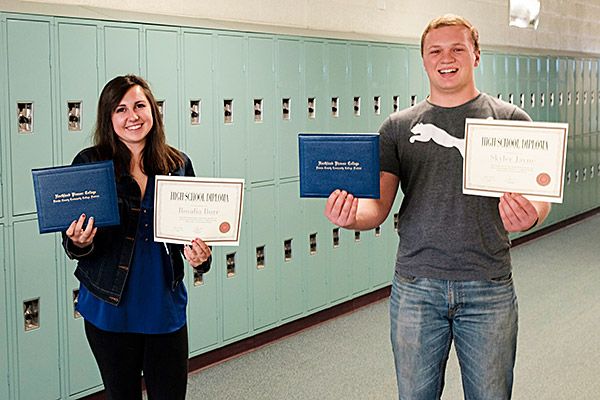- CATEGORIES OF ASSESSMENT
All teaching faculty will undergo an assessment of instructional effectiveness according to the following guidelines:- Resident and Special Status Faculty Assessment
The following three assessment tracks affect resident faculty. Detailed guidelines are outlined in a subsequent section of this Procedure.- Probationary Track
During the first four (4) years of employment, faculty are on probationary status. A faculty member who is not moved to Continuing Contract Status (CCS) may be given a one-year terminal contract for a fifth year. The last year of the probationary period may be waived based on merit, at the joint discretion of the probationary committee and Dean/Director.
All probationary instructors will be assessed according to criteria outlined in the section below. - Continuing Contract Status
Faculty who have completed the probationary period will enter Continuing Contract Status (CCS). All CCS instructors will be assessed according to criteria outlined in the section below. - Developmental Track
Faculty whose job performance declines to unacceptable levels may be moved from CCS to the Developmental Track. The Developmental Track may be invoked for a period of not less than one full semester, nor more than two full semesters. Faculty on this track must fulfill written performance improvement guidelines to return to CCS. Failure to fulfill performance expectations may result in contract termination, or non-renewal.
- Probationary Track
- Adjunct Faculty Assessment
All adjunct faculty will undergo student evaluations in all classes every semester, and will be provided with a summary report by the Dean/Director. Adjunct faculty may also be observed by the Department Chair, Dean/Director, or a designee of the Dean/Director.
Assessment conferences may occur as scheduled by the Department Chair, Dean/Director, or designee.
- Resident and Special Status Faculty Assessment
- GUIDELINES FOR ASSESSMENT
Guidelines for assessing instructional effectiveness for all teaching faculty are described below:- Resident and Special Status Faculty
- Probationary Track
During the probationary period, the following criteria will be used in assessing instructional effectiveness:- During the first three weeks of employment, the probationary instructor is informed of the assessment process, criteria, and appropriate forms by the Dean/Director.
- Within four weeks of the start of a new academic year, the Department Chair, in consultation with the Dean/Director, recommends a probationary committee to the Vice President for Learning and Student Services (VPLSS). The probationary committee is to be composed of non-probationary faculty.
- Student assessments are collected, following student assessment procedures, in all classes, each semester.
- The probationary committee conducts a minimum of two class observations each year. The Department Chair, Dean/Director, or VPLSS may conduct additional observations.
- By February 1, the Dean/Director requests a written self-assessment from the probationary instructor addressing issues of instructional effectiveness, service, and scholarship/creative work. This report is due to the Dean/Director prior to February 20.
- Prior to February 28, the probationary committee meets to review all student assessments, observation reports, and self-assessment documentation, and any other relevant materials.
Following this review, the committee forwards its report to the Department Chair and Dean/Director. Included in the report are an assessment of the probationary faculty member’s strengths, areas needing improvement, and a recommendation for the renewal, or non-renewal of the faculty member’s contract. Beginning in the third year review, the probationary committee has the option to recommend movement to Continuing Contract Status. The Dean/Director makes an independent recommendation. The probationary faculty member reviews and comments on the report and forwards the signed report to the Department Chair, the Dean/Director and the VPLSS. - The VPLSS reviews the committee's recommendation, concurs or dissents, and forwards the report and recommendations to the President.
- Continuing Contract Status
Assessment for Continuing Contract Status (CCS) faculty focuses upon the improvement and refinement of professional skills in the areas of teaching, service, and scholarship/creative work. To this end student evaluations will be collected for every class every semester as is practical. In addition an annual assessment will be conducted as follows:- Pre-Assessment Conference
By October 15 of each academic year, the Dean/Director or Department Chair will schedule a pre-assessment conference. In preparation for this meeting the CCS faculty identifies improvement objectives. These improvement objectives should be designed to enhance professional development and may include:- Learning and applying new teaching strategies
- Assessing the effectiveness of teaching strategies via classroom research
- Developing new curricula and related materials
- Enhancing the depth or breadth of the academic area of expertise
- Improving teaching effectiveness by modifying personal and interpersonal behavior
- Service to any of the following:
- The college
- The community
- The CCS faculty member's discipline or field
- Engagement in scholarly or creative activities
- Other professional development activities
- Improvement Activities
During the activities phase of the assessment, the growth plan is implemented. Examples of improvement activities may include:- Implement new teaching strategies and their observation by the Dean/Director
- Conduct classroom research to assess instructional effectiveness
- Produce new curricula and related materials
- Follow course of study to enhance academic expertise
- Practice behavior modifications under guidance of Dean/Director, or colleague
- Post-Activity Assessment Conference
Within three weeks of completing the growth plan activity, the Department Chair or Dean/Director will conduct an assessment conference with the instructor. During this conference, the parties will:- Review the activity documentation
- Assess the success of the activities in meeting the growth objectives
- Review student evaluations
- Unsatisfactory Assessment
In the event that the post-activity conference results in an unsatisfactory assessment, the Dean/Director, in consultation with the Department Chair, may convene a Peer-Assessment Review Committee (PARC). The committee consists of three Continuing Contract Status faculty, two inside the discipline if possible, and one outside the discipline. The PARC shall do the following:- The PARC reviews the faculty member's improvement objectives and student evaluations.
- Each PARC member conducts a minimum of one unannounced class observation in the semester following the unsatisfactory assessment.
- The Department Chair, Dean/Director or VPLSS may conduct additional class observations.
- At the end of the review semester, the PARC shall make a recommendation on whether the faculty member should remain on Continuing Contract Status or be moved to the Developmental Track.
- The PARC will submit their findings and recommendations to the Department Chair, Dean/Director, and VPLSS.
- Pre-Assessment Conference
- Developmental Track
An instructor who demonstrates a significant difficulty with job performance may be moved from Continuing Contract Status to the Developmental Track for not less than one semester, nor more than one year. This evaluation may occur at any time, once the following conditions have been met:- The evaluation proposing such a move may be recommended by the appropriate Department Chair, Dean/Director, or PARC, but will be approved by the VPLSS. A discussion will be held between the faculty member, Department Chair, Dean/Director, and VPLSS to review the issues, and supporting justification. The instructor will have an opportunity to refute the evidence and conclusions drawn.
If the instructor wishes, a neutral faculty representative may also attend this discussion. All four participating parties must agree upon this representative. - The VPLSS may opt to recommend Developmental Track placement to the President, providing supporting justification and recommending corrective action. If the neutral faculty representative disagrees with this recommendation, they may forward an independent opinion to the President.
- The President will notify the instructor in writing if the move to Developmental Track has been approved. A documented plan for corrective action will be included.
The Dean/Director, Department Chair, or Dean/Director's designee will closely monitor the instructor's performance during this period, with written documentation reporting the instructor's progress. Copies of this documentation will be supplied to the instructor.
At such time as the Dean/Director is satisfied that remediation has been successful, recommendation will be made to the VPLSS that the instructor be returned to the Continuing Contract Status. An instructor who does not respond to remediation may be subject to termination or non-renewal of contract, and a copy of all related documentation will be sent to the President. - The evaluation proposing such a move may be recommended by the appropriate Department Chair, Dean/Director, or PARC, but will be approved by the VPLSS. A discussion will be held between the faculty member, Department Chair, Dean/Director, and VPLSS to review the issues, and supporting justification. The instructor will have an opportunity to refute the evidence and conclusions drawn.
- Probationary Track
- Adjunct Faculty Evaluations
- Adjunct faculty will be evaluated by students in all classes every semester.
- Data collected from evaluation procedures will be utilized as indicated in the rest of this procedure. The assessment data will become a part of program assessment, consideration for future class assignments, and for institutional effectiveness.
Based on Policy #1730; Revised 1/23/17 - Resident and Special Status Faculty
- Home
- Policies
- Procedures
- Procedures Overview
- District Governing Board - 2000's
- College Operations, General - 2100's
- Information Services, General - 2200's
- Business Office - 2300's
- Marketing, Public Relations - 2400's
- Facilities - 2500's
- Student Services - 2600's
- Personnel, General - 2700's
- Personnel, Non-Exempt - 2800's
- Personnel, Faculty - 2900's
- Instruction - 3000's & 3100's
Assessment of Instructional Effectiveness
Procedure 2970
Contact
Julia Wilson
Executive Assistant to the President/Recording Secretary to the District Governing Board
P.O. Box 610
Holbrook, AZ 86025
(928) 524-7418





